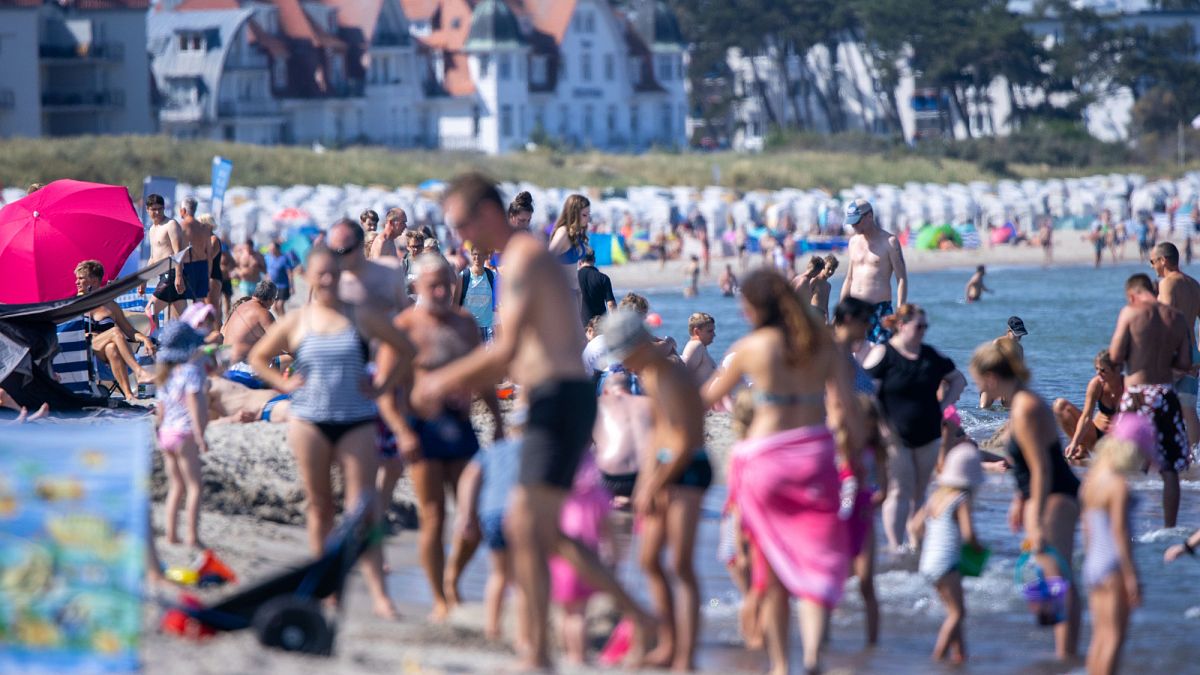

As the summer sun entices us to the serene coastlines of Europe, it also ushers in a discreet reminder to stay mindful of our environment. The warmth that beckons beachgoers to enjoy the water can also create conditions ripe for certain microorganisms, such as Vibrio bacteria, to thrive. While this might sound concerning, understanding the nature of this bacteria and the measures we can take ensures that a day at the beach remains a source of joy and relaxation.
Vibrio bacteria are naturally occurring organisms that prefer warm saline environments, most commonly found in the ocean. They have traditionally inhabited the Baltic Sea’s waters and, more recently, have been detected in the North Sea and several enclosed bathing sites. These bacteria flourish when temperatures rise, becoming more prevalent during the summer months when water temperatures generally exceed 20 degrees Celsius.
Despite their presence, Vibrio bacteria are only a concern under specific circumstances. Infections are rare but can occur, mostly presenting as gastrointestinal issues or wound infections. Those with open cuts or weakened immune systems should be particularly cautious. As with many aspects of life, prevention and awareness are key. Knowledge of potential symptoms and a vigilant approach to personal health can prevent an enjoyable beach day from being marred.
Public health officials provide reassuring guidance, emphasizing the importance of staying informed and taking simple preventive measures. It’s suggested that beachgoers avoid ingesting seawater and protect existing cuts or abrasions with waterproof dressings. Regular hand washing and showering after swimming can further reduce the likelihood of any infection. These practical steps can ensure that everyone can relish the summer beach experience safely.
The presence of Vibrio bacteria should not overshadow the countless benefits of coastal activities. Time by the sea is rejuvenating, offering physical exercise, opportunities for family bonding, and mental tranquility. The rhythmic sound of waves and the warm embrace of sunlight have unmatched restorative effects. Therefore, it is with an informed and mindful spirit that we can continue to enjoy these natural pleasures.
Authorities around the European coastlines remain vigilant, conducting regular environmental monitoring to assess the levels of Vibrio in the water. This continuous research and testing play a crucial role in ensuring public health and safety. Updates are provided to the public, maintaining transparency and empowering individuals to make informed decisions about their recreational activities.
The occurrence of Vibrio bacteria should be contextualized as part of the broader ecological tapestry that makes our planet diverse and dynamic. Just as the changing weather patterns and evolving ecosystems are integral to our environment, so too is the presence of microbial life. Embracing this understanding fosters a deeper respect and appreciation for nature’s complex balance.
In conclusion, our trips to the beach need not be marked by anxiety or concern. Armed with awareness and the simplicity of preventive actions, we can maintain our connection to these beautiful and cherished environments. The European coastlines offer moments of peace, excitement, and inspiration, reminding us of the importance of living harmoniously with the natural world.
May this summer be one of calm exploration, mindful presence, and positive interaction with our surroundings. By staying informed and proactive, we safeguard not only our health but also the enduring joy that comes from experiencing nature’s wonders. So pack your sunscreen, a good book, and perhaps a protective bandage or two, and let the coast’s timeless embrace provide comfort and happiness anew.
Source: {link}
